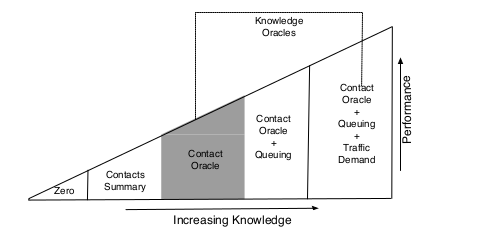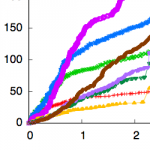Links
Abstract
Routing in opportunistic networks heavily relies on past behavior of the mobile devices it is formed of to predict their future and thus making routing decisions. While almost every protocol relies on this history, its prediction quality has never been studied in a realistic setting. Using extensive simulations on real traces, we are able to describe for the first time how well predictions can be. Unlike oracle-based prediction comparisons, we do not try to predict a contact, but compare the expected user result, namely message delivery probabilities. The analysis also provides guidance on the importance of multi-path routing and the path diversity required, as well as on the impact on forward error correction on the delivery probability. Our results show that the repetitive nature of path is directly proportional to the mobility extent of the devices and, consequently, history obtained from dense opportunistic networks is reliable.
BibTeX (Download)
@inproceedings{islam11prediction,
title = {Prediction quality of contact history in opportunistic networks},
author = {Muhammad Arshad Islam and Marcel Waldvogel},
url = {https://netfuture.ch/wp-content/uploads/2013/11/islam11prediction.pdf},
year = {2011},
date = {2011-10-10},
urldate = {1000-01-01},
booktitle = {Wireless Days},
crossref = {DBLP:conf/wd/2011},
abstract = {Routing in opportunistic networks heavily relies on past behavior of the mobile devices it is formed of to predict their future and thus making routing decisions. While almost every protocol relies on this history, its prediction quality has never been studied in a realistic setting. Using extensive simulations on real traces, we are able to describe for the first time how well predictions can be. Unlike oracle-based prediction comparisons, we do not try to predict a contact, but compare the expected user result, namely message delivery probabilities. The analysis also provides guidance on the importance of multi-path routing and the path diversity required, as well as on the impact on forward error correction on the delivery probability. Our results show that the repetitive nature of path is directly proportional to the mobility extent of the devices and, consequently, history obtained from dense opportunistic networks is reliable.},
keywords = {Opportunistic Networks},
pubstate = {published},
tppubtype = {inproceedings}
}




